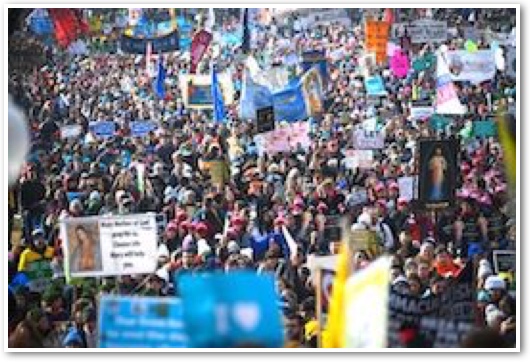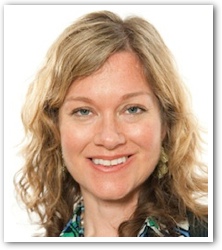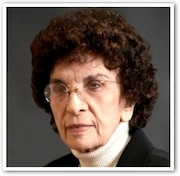We March Onward
- ALTON J. PELOWSKI
An interview with Jeanne Monahan about the history and future of the annual March for Life.
 On Nov. 19, 2012, Jeanne Monahan became the new full-time president of the March for Life Education & Defense Fund, which organizes and runs the March for Life in Washington, D.C., each January. Monahan, who previously served in various positions as a pro-life spokeswoman and advocate, succeeds the late Nellie Gray, the founder and president, who died in August 2012 at age 86.
On Nov. 19, 2012, Jeanne Monahan became the new full-time president of the March for Life Education & Defense Fund, which organizes and runs the March for Life in Washington, D.C., each January. Monahan, who previously served in various positions as a pro-life spokeswoman and advocate, succeeds the late Nellie Gray, the founder and president, who died in August 2012 at age 86.
Since the first March for Life in 1974, the annual rally has been one of the most significant pro-life events in the world, inspiring similar events on the West Coast, in Canada and elsewhere. Organizers are currently preparing for the 40th annual March for Life, which will take place Jan. 25 on the National Mall. Columbia's managing editor, Alton Pelowski, interviewed Monahan about the event.
Columbia: What has been the legacy of Nellie Gray, the founder and former president of the March for Life?
Jeanne Monahan: It's really because of Nellie that we have the largest pro-life event in the world annually in Washington, D.C.
Nellie was a woman of principle and was very staunch about not compromising even an inch on what she knew to be real, true and good. Her name is synonymous with the phrase "No exceptions, no compromise." No baby is worth an exception.
This year, it's so important to be grateful to God for the gift that Nellie and so many others, usually unpaid heroes, have been to the pro-life movement.
Columbia: How have the size and demographics of the March for Life changed throughout the years?
 |
|
Jeanne Monahan is the president
of the March for Life Education and Defense Fund |
Jeanne Monahan: The number of people rallying each year can depend on weather, security and other issues. But we have had hundreds of thousands of participants in recent years and believe participation will increase this year.
Given the current political climate, the 40-year anniversary of Roe v. Wade and Nellie's death, I expect this January to bring a lot of media coverage. We'll warmly embrace it and do our very best to bring to light as much as we can about our movement — how positive it is, how youth-focused it is.
The vast majority of participants are 25 and younger, and that speaks volumes. We know polling is showing that being pro-life is the new normal in America. More Americans self-identify as being pro-life, and young people are the most pro-life of all age groups. We really see that reflected at the March for Life. Young people know that abortion is the human rights issue of our day, and they're set to overturn Roe in their lifetime, to make things right. The other side is definitely afraid of us, because we have the young people on our side.
Columbia: What do you think accounts for this shift of perception about abortion in our culture?
Jeanne Monahan: I think that we're winning in the court of public debate, which in some ways is the most critical victory. In part, this is because technology and truth are on our side. There have been so many advances in technology, such as ultrasound machines that can detect the sound of the heartbeat, that show that a baby is a baby from conception. We don't ever have to manipulate or try to cajole people to believe what we believe, because the truth itself is so compelling. As we see more scientific advances and research, people become more pro-life.
A few other things have also happened, such as Congress' debate on partial-birth abortion, which began in the 1990s. For the first time, many people saw abortion for what it is: a violent surgery that takes the life of a baby and harms the mother.
Columbia: How would you describe the atmosphere of the March for Life?
Jeanne Monahan: On one hand, you have the energy of the young people, who are the best pro-life ambassadors. They have this tremendous joy and energy that we all draw upon.
There are also a lot of women who have signs saying that they regret their abortions. And you see some heartbreaking pictures of abortion, for which not everybody advocates. There are mothers with their babies who have chosen life and are with the pregnancy center movement. And there are many religious communities, Knights of Columbus councils and families.
It's an interesting mix between the recognition of the loss of 55 million human lives and this human rights atrocity of our time, and the joy, enthusiasm and energy of fighting for what we know is the right cause.

Columbia: What role has the Knights of Columbus played in the march?
Jeanne Monahan: The Knights play a huge role in the March for Life. They have been extraordinarily supportive in helping to make my work possible, and for that I'm very grateful. They also have, throughout the years, provided a lot of support in the way of security, serving as marshals at the March for Life and helping to run it. Each year, Knights of Columbus councils in the Washington area also assemble and distribute about 10,000 pro-life signs at the march.
A number of Knights are on the March for Life board as well. They've been intricately involved with the march. Without their support over these years it would be hard to see how we'd still be thriving as much as we are.
Columbia: What are some of the notable pro-life events associated with the March for Life weekend?
Jeanne Monahan: On Thursday, there is the annual March for Life Convention, which includes a large youth rally. There is the Law of Life Summit, geared to law students and pro-life lawyers. We also have the Rose Dinner on the evening of the March for Life. And for the first time ever, we are co-sponsoring a 5K run on Saturday, which I think is going to be quite popular.
Those are events formally affiliated with the March for Life. There are also numerous other activities, including the vigil Mass at the Basilica of the Shrine of the Immaculate Conception the night before and two diocesan programs that gather thousands of young people. The Archdiocese of Washington hosts a Mass at the Verizon Center, gathering about 20,000 youth, and this year will host a second event at the University of Maryland. The Diocese of Arlington is hosting a similar event at George Mason University's Patriot Center.
Columbia: What do you see as your biggest challenges as the new president of the March for Life Education & Defense Fund?
Jeanne Monahan: Of course, it's hard to follow in Nellie's footsteps, but I think God is really guiding our work. It's all very much in his hands, and I ask that people keep us in their prayers.
The recent election results present challenges for pro-life people in America. Many of the legislative and political decisions being made today are not friendly toward the areas that we are most concerned about.
Our immediate goal is to organize an appropriate, somber memorial for this 40th anniversary of Roe v. Wade, recalling that we've lost more than 55 million Americans to abortion. Nobody thought that 40 years would pass and Roe would still be the law of the land. Long term, we want to be a voice in the community — impacting culture to become more pro-life.
The March for Life organization has changed in different ways throughout the years, but I think the largest change is what's happening now. We are now going to have a few paid staff members and will build upon the foundation that Nellie has created. We want to grow to be a non-profit, pro-life organization that, instead of only having our voice heard on the anniversary of Roe, impacts culture to be more pro-life every day of the year. We really want to work ourselves out of a job.
![]()
See the schedule of events for the National March for Life here
![]()
Founding the March for Life
 |
Born June 25, 1926, in Texa, Nellie Gray served as a corporal in the Women's Army Corps during World War II. She later earned a bachelor's degree in business and a master's in economics. She worked for the federal government for 28 years, attended Georgetown University Law School and practiced law before the U.S. Supreme Court.
In a 2010 profile, Gray spoke of the origins of the March for Life, which has taken place annually since 1974. "I received a call from the Knights of Columbus," she recalled. "I didn't even know who they were, but they explained their stance against abortion and needed a place to meet to discuss plans for a march. That place was my living room. About 30 people gathered there and they asked if I could help get speakers for the event since I knew Capitol Hill well.
"What I couldn't get was a master of ceremonies for the event," she added. "Politicians didn't want to get involved in a march, and people at that time weren't interested in marches after the civil rights movement and other things. That left the emcee job to me."
She died Aug. 13, 2012, at age 86. Tributes poured in as news of her death spread. Catholic News Service
![]()
 This is Meaghen Gonzalez, Editor of CERC. I hope you appreciated this piece. We curate these articles especially for believers like you.
This is Meaghen Gonzalez, Editor of CERC. I hope you appreciated this piece. We curate these articles especially for believers like you.
Please show your appreciation by making a $3 donation. CERC is entirely reader supported.

Acknowledgement
Alton J. Pelowski. "We March Onward." Columbia magazine (January, 2013): 8-11
This article is reprinted here with permission from the Knights of Columbus, New Haven, Conn. The original article is posted here.
The Author
Alton J. Pelowski is managing editor of Columbia and a 2006 graduate (M.T.S.) of the Pontifical John Paul II Institute for Studies on Marriage and Family at The Catholic University of America.
Copyright © 2013 Columbia magazine



